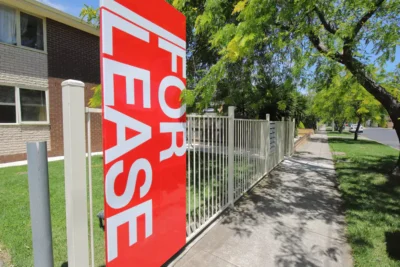Tokenisation of real estate assets
This article is based on the Talk Show session at the PropertyGuru Asia Real Estate Summit originally presented on 8 December 2021.
Finance expert gives the lowdown on tokenising assets

Real estate is one of the most valuable asset classes in the world, but it is mostly illiquid.
In countries like Singapore, tokenisation of real assets is becoming popular because it gives buyers control over their purchases, the capability to own single properties, and the authority to decide on creating their own portfolio.
Rani Kaur, Managing Director, Head of Strategy and Business Management of Bank of Singapore, talked to Michelle Martin, Broadcaster and Talk Show Host of Money FM 89.3, about the functions of fintech and its current and future uses in the realm of real estate, from buying virtual land to using cryptocurrency to purchasing physical assets.
Tokenisation of real estate assets 101
There’s still a long way to go before a legislative framework for digital assets is created and solidified. But what’s interesting to note is that tokenised real assets are similar to a share certificate in that ownership information, construction plans, and investor rights are all mapped in digital form and recorded in a smart contract.
A smart contract is a programme that runs when predetermined conditions are met. It runs automated processes to solve or match the owner’s clauses. Once it goes through the process, the value of the property is then distributed among a fixed number of tokens, which are issued to investors along with a digital receipt.
The most common use case for tokenised assets is the ownership of an underlying asset (e.g., equity, interest) in a legal entity that owns the asset, which applies in countries like Singapore and Hong Kong. Simply put, tokenisation makes it possible for several entities to share in the profits generated by the asset.
After the initial issue of the tokenised assets, you can put them on other available digital exchanges. You can also trade among your peers, and that is where most of the liquidity comes in. It’s almost like listing them and enabling more participants to partake in them.
The unique thing about tokens is that they can be fractionalised, which means that these assets can be broken down into smaller portions so that they can be made available to more people at a lower unit cost.
To buy or not to buy
In Singapore, regulations require REITs to distribute 90 percent of income to unit holders. In this regard, it would be more beneficial to invest in tokenised real assets than REITs, as these assets have a strong technology-enabled investor base. And because it’s single-property ownership, you get all the income.
For example, you can potentially own a fraction of a good class bungalow (GCB) in Nassim Hill and participate in the upside of the investment. Use that token on the blockchain securely, trade it, and share in the valuations.
Investing in tokens also allows you to create your own portfolio, which means lower fees.
Kaur noted that the risks associated with the tokenisation of property are still being studied, but he cited investor protection, security, and corruption as primary examples of such risks. According to Kaur, public awareness surrounding non-fungible tokens (NFTs) and cryptocurrency has increased significantly, saying, “With more time, deeper understanding, greater regulatory protections, and more extensive legislative measures, trust in these assets will also increase.”
Kaur also mentioned Mars House, the world’s first digital house that sold for ETH288 (USD500,000 at the time), and the fundamental belief that people will be spending more time in digital homes, offices, and other spaces, meaning there will be more avenues to monetise virtual real estate within the metaverse.
Indian entrepreneur Vignesh Sundaresan spent USD69 million on digital art but does not own any real estate assets outside the metaverse. He is, however, asset-heavy in the virtual world. He also firmly believes that people will be spending more time in the virtual world.
She also commented on whether or not she would use cryptocurrency to buy physical real estate assets, stating, “I don’t want to convert my crypto to fiat and then be subject to capital gains tax.”
She added: “If there were a stablecoin, a coin that is backed by an existing currency, then I would probably use that to pay for physical property.”

“Three things come to mind when talking about future trends,” Kaur mused, citing the Internet of Things (IoT), artificial intelligence (AI), and big data, which, ultimately, is what provides information that can be used to make better, more informed real estate decisions.
Hopefully, there will be more standardisation and indexing to increase transparency, which also drives capital inflow.
The future of fintech lies in several key trends such as prop tech, legal tech, and regulatory technology (RegTech) because these make the process less cumbersome and paper-intensive.
Client experience will also be a key differentiator. There are now tenant engagement apps that let customers rate their experience with the services provided. This, in turn, will lead to fintech companies and/or relevant entities gaining more insights and data from consumers as they specify their likes and dislikes, which can only improve valuations.
When asked about the entities involved, as well as how large a disintermediation force tokenisation is in real estate, Kaur said, “There is space for everyone to participate. Also, there are still a lot of offline contributions from stakeholders who continue to play a part in the whole end-to-end creation of a tokenisation value chain.
“However, there are some things that third parties used to do that might be automated. For example, smart contracts will still have to automate many of the binary decision-making aspects of the entire process, which I think won’t cause disintermediation in a significant way, but that might change over time,” she added.
Virtual status symbol
NFTs cannot be exchanged for fiat.
In the past, there was virtually no way to protect the value of digital art. But with tokenisation, you can now verify that you are the owner of a certain digital asset or NFT, especially on platforms like Twitter.
The phenomenon of having digital proof of ownership of unique assets is gaining traction, and the real estate sector is catching up.
Kaur used as an example the Bored Ape Yacht Club to explain how it all works, saying, ”A bunch of apes just doing different random things are generating USD600 million in sales in a year. This is an instance of apeing, in which someone buys an NFT without considering the risks involved.
“I’ve realised that NFTs are becoming a digital status symbol. An increasing number of companies — especially in the tech industry — are participating, and it’s all taking place in what I would call the ‘online luxury collectible space.’”
Physical and virtual trading hubs
The environments where real estate investments are can be divided into two categories: physical and virtual. Interestingly, it is possible to convert your property into NFT in the physical world. TechCrunch co-founder Michael Arrington, who recently auctioned his loft in Kiev for about USD20,000, is exploring one application, in particular.
Furthermore, the metaverse and companies like Meta (Facebook), Decentraland, and SuperWorld are giving people the opportunity to own real estate through NFTs online.
SuperWorld, for instance, is geographically mapped to 64 billion plots of equal size, covering the surface of the earth. You could literally buy whatever you want on earth and pay approximately USD 2,000, which is currently the average spending amount on SuperWorld.
This article was originally published on asiarealestatesummit.com. Write to our editors at [email protected].
Recommended
Philippine real estate sees growth in regional markets despite challenges in Metro Manila
Amid pressures, developers and investors are capitalising on a range of opportunities to drive growth in the nation's real estate sector
Bali leads the charge in Indonesia’s rental boom while other regions struggle to keep pace
The rental market is soaring in Bali due to its rich cultural heritage and island charm, while other regions of Indonesia are experiencing less success
Rental markets surge in Asia as digital nomads find new opportunities with visa reforms
As countries in Asia roll out customised visa programmes, rental markets are thriving with the influx of remote workers
China’s hospitality market thrives as developers sell off assets to spark recovery
China’s indebted developers are divesting hospitality assets to generate growth and enhance the outlook of the country’s real estate market







